Daily Business Report-May 8, 2018
Photo from Creative Commons
Cultivating Clout: Marijuana
Money Floats Into California Politics
By Laurel Rosenhall | CALmatters
Lobbyists in slick pinstriped suits and burly veterans with tattooed arms crowded into a Capitol hearing room last week as lawmakers considered a bill to make it easier for Californians to buy legal marijuana. One supporter said people need more access to the “beautiful sacred plant.” But at its core, this was a business dispute—a question of whether legislators would allow cannabis companies to reach more customers, and make more money.
The committee passed the bill—to stop cities from banning delivery services that sell pot to customers at their doorsteps—despite objections from cities and counties that favor local control. And the standing-room-only crowd that showed up to push for it revealed the new reality in California, where cannabis interests have become a formidable lobbying force.

As marijuana companies seek laws more favorable to their industry, they are using the traditional tools of politics: hiring well-heeled lobbyists and donating money to politicians. Cannabis is big business in California, with sales expected to hit $3.7 billion by the end of the year, according to BDS Analytics. The industry’s spending on California politics soared in 2016, when voters made it legal for adults to use the drug.
“They want to be treated like every other business, and part of that is making campaign contributions so they can get access to politicians and have their voice heard,” said Jim Sutton, an attorney who represents cannabis businesses organizing political campaigns.
Cannabis companies, entrepreneurs and advocates spent at least $1.8 million to help pass the legalization measure in 2016. Since then, the industry has donated more than $600,000 to California political campaigns—more than four times as much as it spent on politics in the state during the 2013-14 election campaigns. Cannabis money is flowing to Democrats and Republicans running for re-election to the Legislature, as well as to Democratic candidates hoping to be elected governor and attorney general.
With the money comes a mainstream political presence for an industry quickly shedding its counterculture image.
At the California Democratic Party convention in February, the roster of receptions for delegates included one sponsored by Eaze, a company whose website allows people to order home delivery of marijuana. It was one of three marijuana companies that donated to the state party for the first time this year, for a total of $45,000.
“I’m sure we will [continue] soliciting from the cannabis industry,” said party chairman Eric Bauman. “It’s a legal industry in California. It’s not one that hurts the environment, it’s not undermining our society. So we welcome their dollars.”
The party prohibits donations from tobacco and oil companies.
Democratic Lt. Gov. Gavin Newsom, the front-runner in the race for governor, has raised more money from cannabis interests than any other California politician: at least $495,000 as of April. Newsom championed the legalization ballot measure and now talks about California rejecting the “war on marijuana” as part of his gubernatorial campaign.
One of his opponents, state Treasurer John Chiang, is also touting his cannabis cred. A Democrat who has received at least $10,100 from marijuana interests, Chiang has highlighted his interest in creating a state bank that could serve cannabis businesses. He visited a San Francisco dispensary on April 20, then issued a press release calling the date “National Weed Day.” It included a photo of him examining a cannabis chocolate bar and a jar of buds.
Attorney General Xavier Becerra has taken at least $21,000 from cannabis interests in his re-election campaign. It’s a marked difference from the last election for that office—in 2014, then-Attorney General Kamala Harris reported no donations from marijuana businesses. She made a deliberate decision, an adviser said, to avoid contributions that could raise questions about her role as the state’s top law-enforcement officer.
Although marijuana remains illegal under federal law, attempts to ban contributions from the cannabis sector have been unsuccessful. The state of Illinois prohibited political contributions from weed businesses when it approved its medical marijuana law in 2013. But the ban was thrown out last year by a federal judge who ruled it unconstitutional.
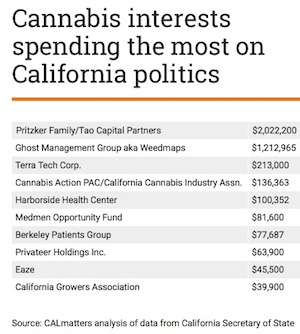
Cannabis businesses in California now have several trade associations and a political action committee for raising money to dole out to politicians.
“It’s just one tool folks in cannabis policy reform are using to move the conversation in a positive direction,” Lindsay Robinson, executive director of the California Cannabis Industry Association, said, referring to campaign contributions. That PAC has raised more than $290,000 since launching in 2014. “The goal we’re striving for is for cannabis businesses to be regulated and treated like any other business, taxed fairly and able to thrive in the market….The political giving piece is important,” she said.
That point was illustrated back in the hearing room, where lawmakers were considering the bill to expand marijuana delivery services, authored by Sen. Ricardo Lara, a Democrat from Bell Gardens who has taken at least $18,900 from cannabis interests and is now running for Insurance Commissioner.
Not every legislator who accepted marijuana contributions voted for the bill. Sen. Mike McGuire, a Healdsburg Democrat, took a $4,000 check from a marijuana delivery company last year but sided with the local governments that opposed limits on their power to ban delivery services.
Still, marijuana businesses that want to get ahead have to play politics, said Hilary Bricken, a Los Angeles attorney who specializes in cannabis law—and that generally means throwing some money around. “Cannabis has learned from Big Pharma, Big Alcohol and Big Tobacco that they have to step up in this way,” she said. “They would be stupid to not do what’s worked for the industries that came before them.”
______________________

Surgeons Preserve Patients’ Hearing
With Innovative Brainstem Implant
By Jackie Carr | UC San Diego News Center
Patients with rare brain tumors on the auditory nerve now have an option to prevent complete deafness at UC San Diego Health. The device, called an auditory brainstem implant or ABI, fits behind the ear and connects directly to the brainstem. The device enables patients with neurofibromatosis type 2 (NF2) who develop bilateral hearing nerve tumors to be aware of environmental sounds, such as a door opening, a phone ringing or a car approaching.
“An auditory brainstem implant can have a profoundly positive impact on a patient’s quality of life,” said Marc Schwartz, M.D., neurosurgeon at UC San Diego Health. “The device helps patients to perceive sound and communicate more effectively through lip reading. It was designed for patients with NF2 who may not benefit from traditional hearing devices. The highest performing patients with ABIs may develop the ability to understand some speech.”
NF2 is an inherited disorder. There are two forms of the disease. In one form, patients develop growths called acoustic neuromas in both ears, which usually leads to complete deafness. A more aggressive form of the disease results in tumors throughout the brain and spine.
______________________
San Diego Blood Bank Taps Seqster
for Data Storage and Sharing
GenomeWeb
Seqster, a San Diego-based startup that makes a consumer-centric personal health records platform, is partnering with the San Diego Blood Bank to allow users to manage their health data via the blood bank’s donor web portal, the two entities announced Monday.
The San Diego Blood Bank is part of a consortium that is participating in the Precision Medicine Initiative. It first offered free genome sequencing to 70 donors in 2015 under a collaboration with Illumina.
With this partnership, SDBB donors will be able to aggregate and manage health and genomics data from electronic health records, consumer DNA testing services like 23andMe, fitness trackers, and other wearable devices — assuming hospitals and physician practices offer easy access to their EHRs. Users of the blood bank’s RedConnect web portal will be able to share their information with researchers and to move their data into a legal trust to allow their descendants to control personal and family medical histories in the future.
“Many donors already consider blood donation a health event. They track things like cholesterol and blood pressure over the years with our existing wellness portal functionality,” San Diego Blood Bank CEO David Welli said in a statement. “Now they can opt to see all of their health data in one place through RedConnect.”
Some of the logistics still need to be worked out. The blood bank said it would share eligibility and enrollment details later this year.
______________________
Sharp Hospitals Announce Robotic-Assisted
Total Knee Replacement Surgery
Sharp Coronado Hospital Orthopedic Surgeon Jeremy McCandless on May 5 performed the first San Diego Robotic-Assisted Total Knee Replacement using MAKOplasty Technology. “Precise planning used with the robotic- assisted technology allows unprecedented accuracy in restoring the knee’s natural movement and the early results are very impressive” McCandless said.
Sharp Coronado Hospital and Sharp Grossmont Hospitals are the first in San Diego County to offer robotic‐assisted total knee surgery with the MAKOplasty robot. Sharp Grossmont’s maiden surgery is scheduled for May 10. The innovative technology advances the treatment of severe arthritis by allowing surgeons to be more precise during surgery. By combining the accuracy of computer design with robotic capabilities, a surgical knee replacement can now function more like a normal knee.
An active and aging population will present a more than 600 percent increase in demand for total knee replacements by the year 2030, according to estimates.
______________________
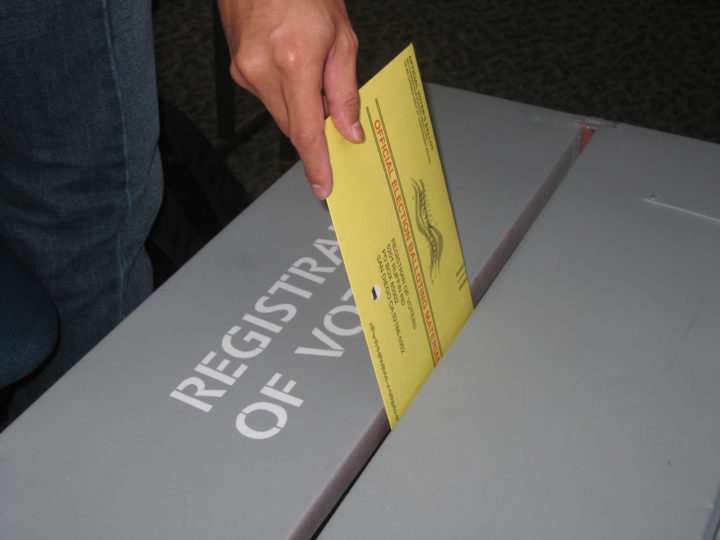
Early Voting Begins for June 5 Primary Election
Voters interested in casting their ballots early for the June 5 Gubernatorial Primary Election can now do so at the County Registrar of Voters office at 5600 Overland Ave. on the County Operations Center campus in Kearny Mesa. Early voting began Monday and will continue from 8 a.m. to 5 p.m. Monday through Friday and until the polls close at 8 p.m. on Election Day. The office will also be open 8 a.m. to 5 p.m. on Saturday, June 2 and Sunday, June 3 for weekend voting.
Also Monday, more than 1 million mail ballots were sent out through the U.S. Postal Service, and voters could find them in their mailboxes as early as that same day.
Mail ballots are convenient for voters who’d rather not make a special trip to the Registrar of Voter’s office to cast their ballots or wait for the polls to open on Election Day. Registered voters can request a mail ballot until May 29. Even if you’re getting your ballot through the mail, you should consider going paperless for your Sample Ballot & Voter Information pamphlet. You can be among the first in the county to get your sample ballot for future election seasons by signing up to get election materials by email.
Meantime, the Registrar is still looking for poll workers especially bilingual poll workers. For more information, call (858) 565-5800 or visit sdvote.com.
______________________
Cubic Awarded Contract to Deliver PRISim
Suite PortableTrainers to Air National Guard
Cubic Global Defense, in partnership with Federal Resources, has been awarded a contract worth more than $6 million to supply the United States Air National Guard with 95 PRISim Suite PortableTrainer systems that include recoil and less-lethal training weapons and devices. The system also includes software capabilities that allow customization of scenarios. To be deployed at every ANG base, the systems will train security forces personnel in use-of-force policy and handling of deadly force and less-lethal weapons.
“We are thrilled with this contract win as PRISim is one of Cubic’s key training solutions for marksmanship and judgement skills,” said Dave Buss, president of Cubic Global Defense. “This contract is a significant first win for the Cubic and Federal Resources partnership and we look forward to supporting the Air National Guard with its mission critical simulation training program.”
______________________
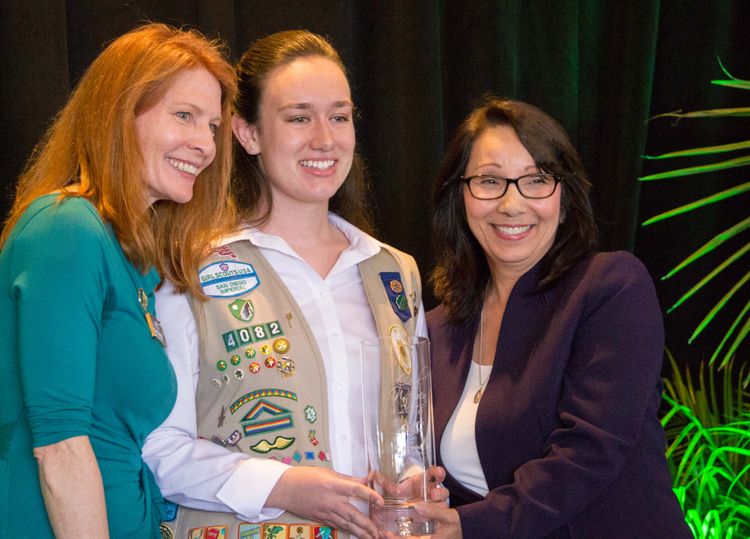
Northrop Grumman VP Jeannie Hilger
Named one of Girl Scouts Cool Women of 2018
Northrop Grumman Corporation’s Jeannie Hilger, vice president, communications business, has been named one of Girl Scouts San Diego’s Cool Women of 2018. The honorees were selected for the personal and professional achievements that make them consummate role models for girls.Hilger, a former Girl Scout, said a common bond she shares with the Girl Scout organization is a passion for involving young women in STEM (science, technology, engineering and mathematics). “It’s so important, and so vital to our country, to have students in leadership roles and to have them involved in STEM,” Hilger said. “Girl Scouts has given you the foundation you need. You can do anything in life.”
In support of the Girl Scouts, the San Diego-based business that Hilger leads launched “Think Outside the Cookie Box.” Now in its fourth year, this day-long STEM conference gives girls the opportunity to perform hands-on science activities, engage with a panel of women engineers and visit company labs. Northrop Grumman is also a bronze sponsor and active participant in the Girl Scout Outreach STEM camp.
Hilger also established the Adelante Engineering Academy at the company’s San Diego site, which has enlightened more than 2,000 students, from elementary school to college, about the benefits of receiving a STEM degree.
Hilger leads strategy and operations of Northrop Grumman’s San Diego-based communications business, which develops and deploys advanced military communications and support systems. These include fifth-generation aircraft avionics, airborne gateways and networks, distributed mission live-virtual-constructive training and military satellite communications systems.
______________________
Grandesign Relocates Headquarters
to Wonder Bread Building Downtown
Ad agency Grandesign has relocated its corporate headquarters to the historic Wonder Bread building in Downtown San Diego. As part of the relocation, the company merged two of its San Diego offices and now has a total of eight offices nationwide.
Located at 125 14th St., the 7,600-square-foot space is designed to accommodate rapid company growth.
“Though our new headquarters may mirror the quintessential creative space found at your typical advertising agency or startup, we’re far from ordinary and we take pride in our family-oriented, competitive and fun-loving style,” said Aaron Gaeir, CEO. “It was important that our new office reflected that.”
The company has grown into a $47 million-per-year business with 132 clients, 55 full-time staffers spread across regional offices and a plan to hit the $100 million mark by 2019, according to Gaeir.
______________________
Personnel Announcements
Joe Yetter Returns to CBRE as a VP
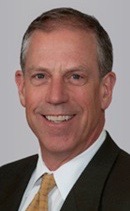
Retail veteran Joe Yetter has returned to CBRE as a first vice president, and based in San Diego.
Yetter has more than 32 years of experience in the industry. He joins CBRE from Cushman & Wakefield, where he specialized in retail leasing, investments and land acquisitions throughout San Diego and Imperial Counties. Prior to Cushman & Wakefield, Yetter started his career at CBRE in 1986.
Throughout his career, Yetter has completed 1,100 transactions with an aggregate consideration exceeding $600 million. He is an active member of the International Council of Shopping Centers and is a CCIM candidate. Yetter has been awarded Power Broker by CoStar in 2001, 2009, 2010, 2012, and 2015.
______________________
Mark Orozco Joins San Diego Natural
History Museum as CFO and COO
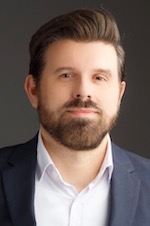
The San Diego Natural History Museum announced the addition of Mark Orozco as chief financial and operations officer. Orozco will oversee accounting, finance, operations, administration, human resources, IT, and legal functions. He replaces Susan Loveall, who left the museum in July 2017 after nearly six years in her role.
A veteran in the financial industry, Orozco brings a track record of strategic executive leadership to the flagship Balboa Park museum. He has more than 20 years of experience in the public and private sectors.
Orozco most recently served as a CFO and strategic operations adviser at Bridgepoint Consulting LLC, where he was directly responsible for assisting entrepreneurial, private-equity backed organizations at varied stages of the business lifecycle with developing and setting strategy, driving growth and profitability, and optimizing business cash flow. He was heavily involved in financial planning and analysis, business development, regulatory and grants compliance, board and staff development, exit strategy planning, and accounting and audit compliance.
______________________
Scott Biel Joins Solomon Ward as Partner
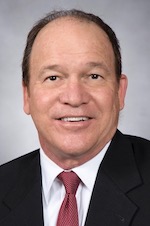
Solomon Ward Seidenwurm & Smith announced that Scott Biel has joined the firm as a partner. Biel joins Solomon Ward’s expanding real estate department. With more 25 years of broad commercial real estate experience, his practice focuses on commercial lease transactions and lease‐related issues, particularly involving research and development (R&D) and manufacturing facilities of technology‐based companies. He represents both landlords and tenants of office, medical, retail, industrial and mixed‐use projects, including several Fortune 500 companies.
Prior to joining Solomon Ward, Biel was a partner and head of the Corporate Real Estate Practice at Mintz Levin Cohn Ferris Glovsky and Popeo PC.
Biel has been ranked as one of the Best Lawyers in America for real estate law and recognized by San Diego Super Lawyers since 2013.
Biel received his J.D. from the University of Pennsylvania Law School, where he was editor-in-chief of the Law Review, and his B.S. from the U.S. Naval Academy.


